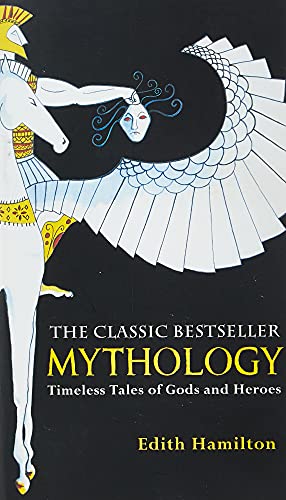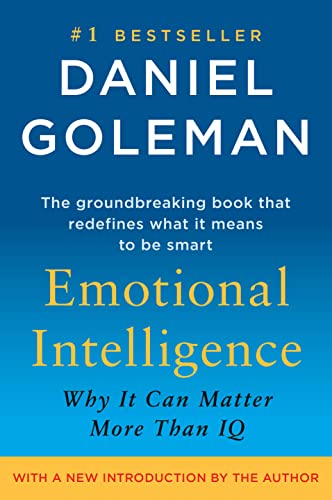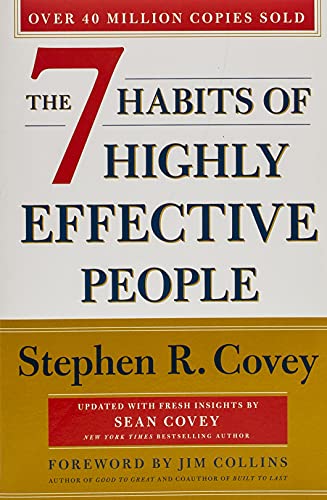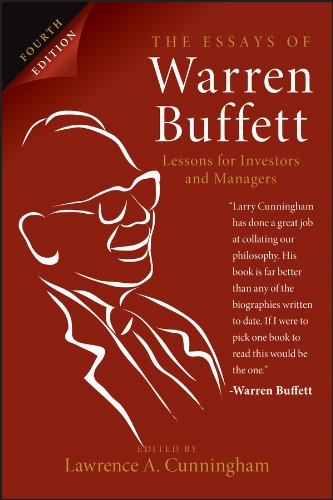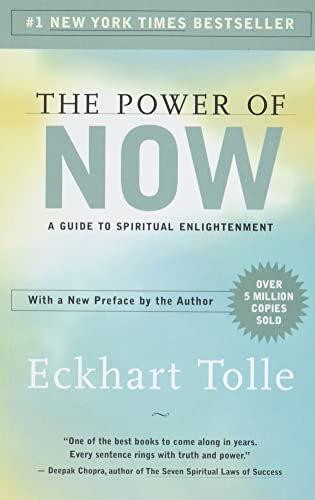Best Product Management Books
In the world of product management, there are many books that can help you learn more about this profession. The following is a list of some of the best ones on the market.
List of the Top 30 Best Books for Product Management
1. The Product Manager’s Desk Reference, by Scott D. Anthony
First published in 2002, the book was written for aspiring product managers to provide practical guidance on effective decision-making. It aims to help product managers build better products and improve their performance by sharing case studies of high-profile companies like eBay, Microsoft, Procter & Gamble.
The Product Manager’s Desk Reference provides insights into how successful companies create great products that achieve business success while meeting customers’ needs. The book covers creating a solid value proposition, identifying profitable customer segments, understanding competition; building brand awareness at launch time; measuring progress against goals throughout the development process, etc.
2. Managing Successful Projects with Prince II, by Stephen R. Covey
This book by Stephen R. Covey is perhaps the best book on project management that I’ve read so far. It has great insights into how to manage projects successfully, and it also goes very deep in teaching about the Prince II method, which you can use for your next project!
3. The Essential Guide to Project Management for Engineers and Scientists, by Frederick Pohlmann
As the name suggests, this book is essential for any person involved in creating products. It will teach you how to effectively manage your time and energy to handle projects while communicating with other team members.
4. A Practitioner’s Guide to Product Management, by Jennifer Riggins
This practical guidebook covers all aspects of product management, such as setting up processes and tools, defining metrics and KPIs for product success, gathering customer feedback through surveys or interviews, and working alongside engineers when developing new features.
It also discusses the differences between software development methodologies such as Agile/Scrum, which often apply in small teams versus larger companies where Waterfall methods are more commonplace. Lastly, it gives tips on practical communication skills needed when dealing with both non-technical and technical teams.
This book is best suited for product managers who are new to the role, perhaps from a marketing or business background. It will provide helpful insights on what one needs to know when working in an Agile development environment and how to deal with engineers who favor Waterfall methodologies.
Another excellent book to pick up is Lean Thinking for Managers by James Womack and Daniel Jones. The authors go over the basics of lean in manufacturing, but it provides a good foundation when discussing how you should be thinking about product management.
The key takeaway from this book is that companies have made too much quality into an objective. They are trying to control something that can’t be controlled – which leads to waste being created instead of removed.
6. How to be a Great Product Manager in 12 Months or Less! A Playbook of Tips from the Trenches – Second Edition, by John Egan
This book is a very quick read, but it’s also one of the best product management books. It provides 50 critical tactics for success as a PM and covers everything from planning to prioritization to leadership skills.
I liked this book because every tip comes with an actionable example or scenario, so you can see how these tips play out in real-life situations. I highly recommend this one!
This book isn’t just another “Product Management 101” book. If you’re looking for something more advanced than what other product management books have to offer, then definitely check this one out!
8. How To Be A Great Product Manager In 12 Months Or Less!, By John Egan
Another great book that you should add to your reading list is How To Be A Great Product Manager In 12 Months Or Less!, written by John Egan.
This book is a different kind of product management book as it does not follow the traditional approach to explaining what great product managers do and how they should behave. Instead, this book provides you with many practical examples that show precisely how things should be done.
This book is an excellent read for all product managers interested and gives you the keys to product leadership in 12 months or less. This means that the content of this book is highly relevant and up-to-date with current best practices, which will make it easy for product leaders from various backgrounds to apply what they learn in this book.
This book is a must-read for product managers. It is about disruptive innovation, which means creating an entirely new market through developing habit forming products that are not necessarily superior to existing ones but rather more appropriate and affordable for specific customer segments.
This book describes how so many companies can find themselves in trouble by focusing on satisfying exactly what their best customers are instead of looking for new ideas to grab a wider crowd.
This is another book by Moore, which uses an analogy of the life cycle of a butterfly to describe how technology products evolve during their growth.
Moore gives his opinion on product leadership and how companies can successfully create extraordinary products into the market by using different marketing strategies depending upon where in the product adoption curve they are operating. This book is often considered one that bridges between early adopters of technology and the mainstream.
If you want to transform your product, read this book.
Seth Godin will give you valuable insights on why standing out is more important than being the best and how storytelling can become essential for marketing strategy. Purple Cow introduces a whole new way to think about innovation that’s simple but brilliant. Whether you’re managing products or relationships, Market Like You Mean It will help you stand out.
12. Good Strategy Bad Strategy, 3rd Edition by Richard Pascale and Anthony J. Athos
Published in 2011, Good Strategy Bad Strategy is a book that is often recommended to people. It is written in an easy-to-understand language with fun stories and examples drawn from the real world (making it easier to remember them). The authors give many interesting frameworks for thinking about company structure and strategies – like the BCG Matrix, Porter’s Five Forces, etc.
13. Blue Ocean Strategy, Expanded Edition by W Chan Kim and Renee Mauborgne
This excellent book has the most comprehensive and up-to-date information on the Blue Ocean Strategy. To create a blue ocean, you must define your strategic intentions before making any moves.
This book is overflowing with great ideas that will help you think about breaking away from crowded markets in ways that produce superior results for all stakeholders involved – not just consumers but also investors, employees, partners, and suppliers. If creating a blue ocean is part of your business goals, this book will be an invaluable addition to your library!
14. Product Management for Dummies (book 1 of 4 in a series) – Steven Haines & Mike McClure
The book is a perfect introduction to product management and is appropriate for technical or non-technical professionals. It was designed as a guide to be quickly adopted in any company environment across all industries.
This book will help you understand the principles of product development, from launching new products to managing existing ones while also helping you manage stakeholders’ expectations.
15. Secrets to Successful Product Management – Vinnie Lauria
As the title suggests, this book is full of secrets that you can use to succeed as a product leader. The author discloses the “secrets” he’s learned throughout his career and provides actionable steps for maximizing your chance at success in leading products from initial concept to launch and beyond. This book has real world examples on what it takes outside of just creating great products. It also gives tips on how to sell your product vision internally within the organization.
16. The Ten Faces Of Innovation – Tom Kelley Jr
The book is an exciting read, and it gives you a lot of different examples of how to solve problems. This book gets at the core of what experienced product managers do – find opportunities in whatever your organization does best!
17. Monetizing Innovation – Michael Michalowicz
If you have a new product idea, this book will help you move from an innovative thought to making money off of it. It teaches the art and science of monetizing innovation for your products so they can provide lasting value in the marketplace.
This is one of the best books because I think entrepreneurs must learn how to think about monetizing their products.
18. Managing the Design Factory – Donald L Miller Jr
This book is a must-read for any new product manager. It takes you through the whole process of managing projects and product teams from beginning to end, including how to scope out requirements, make sure your team succeeds at their tasks, create schedules for releases and iterations (and stick with them), and deal with quality assurance issues.
Even if this book doesn’t have the answers you’re looking for. It will help you ask the right questions about how to do your business.
19. User Story Mapping
In the list of best product management books, “User Story Mapping” by Jeff Patton is one of the top choices that offers real value. It offers a systematized approach to managing requirements throughout your business. The product book includes a practical guide on story mapping, improving team collaboration, scaling techniques for larger projects with dozens or hundreds of users and stories, showing stakeholders the big picture, and scaling techniques to manage large cross-functional teams.
20. Mastering the Art of Product Management
The art of product management is to figure out what customers will buy and make sure your product gets into their hands. This book covers the who, what, and why of product management in a real-world fashion that any working or aspiring PM can relate to so as to solve big problems.
21. Getting Things Done by David Allen
The book by David Allen is about how to handle the task and get things done. In this book, Allen tells what productivity is all about. He stresses the need to be an organized person to get things done without much hassle. This book can be used very well by product managers who are looking for ways of handling their tasks and work efficiently throughout the day, week or year even when they have a lot of other responsibilities as well, especially if your job requires you to do some research or learning along with managing projects at hand.
22. The Essential Product Manager’s Toolkit by Donna Lichaw
This book is an essential read for all product managers. It’s written by the person who coined the term “agile” in 1993, so her expertise is evident throughout this book. This book will help you create your PM tools and processes to use daily at work or as part of running your own company or startup project.
23. The Product Manager’s Survival Guide By Steve Johnson
In this book, the veteran shares his insights on how to be better at your job. He walks you through what it takes making decisions and why sometimes following procedures can lead you down the wrong path when driving innovation in your company. This book is filled with practical examples that will help accelerate your learning curve and enhance decision-making skills for top product managers!
24. Scrum: The Art of Doing Twice the Work in Half the Time
Many people believe scrum means just sprinting, but this book by Jeff Sutherland shows there is more to it than meets the eye. Besides explaining how agile development works and its benefits over traditional methods, he also explains why we should stop breaking our backs trying to get everything done in one go. Instead, he argues that we should be focusing on completing just the most critical tasks to meet deadlines and goals with maximum efficiency while still maintaining quality.
25. The Lean Product Playbook By Dan Olsen
This is one book that takes a different approach than many other books because it is not about how you can do better at your job but shows you how to create products customers want. It teaches readers the lean startup methodology for creating products by applying validated learning techniques to learn what works best when iterating through ideas before wasting time building something customers won’t even use after releasing it!
This book will surely help anyone improve their process of developing new software or hardware since any good PM needs to understand the product’s market and the customer inside out before building anything.
26. The Lean Brand
This book is an excellent read for anyone that wants to learn how to build products or companies from the ground up but doesn’t have enough time on their hands! It cuts out all of the excess fluff typically found in books and instead gets straight to the point: building brands with true meaning behind them is the company’s greatest asset which will help attract customers and investors as well as increase brand advocates who spread the positive word about your business because they believe in what it stands for.
This book can be applied not only when starting your venture but also at work. You may want to reinvigorate an existing one if its core values seem like something no longer relevant today, given changing customer behavior.
27. The Product Marketing Handbook
This book by Anthony Ulwick explains how product managers can focus on the customer’s most important. He teaches readers to understand the needs and wants of customers to make informed decisions about which features or products should be built next, instead of simply building anything they think may sound good without considering what will add value for them! This guide is down-to-earth with practical advice that any new PM could benefit from while still offering some more advanced marketing techniques used within larger companies like Amazon or Apple that want to introduce a completely new product into the market today.
28. Lean Analytics By Alistair Croll & Benjamin Yoskovitz
If you’re planning on starting your own company one day or want to take a different approach at work regarding how you measure your current product’s success, this book is a perfect read! It teaches readers about using data-driven methods when developing new products or marketing existing ones. By understanding what key metrics support growth and which do not, any PM will be able to apply these advanced analytics techniques to make informed decisions that improve their chances of succeeding with whatever they’re working on today.
29. The Inmates Are Running The Asylum
This classic from Alan Cooper tells us why software companies should stop building applications based upon features alone but instead focus on user experience since it impacts both company revenue and customer satisfaction more than anything else! This book offers an excellent reminder for all PMs to please the customer and understand their needs before building anything. It will lead to a clear understanding of what your company’s products should look like to succeed.
30. The Design of Everyday Things By Don Norman
This book is excellent for anyone interested in learning more about designing things, with usability always at top priority! It offers insights into how we can use design thinking when creating new product features that solve problems better than any other solution today. Readers will learn why existing designs may not be working well or why people seem frustrated even though they’re technically capable of using specific interfaces and tools effectively by considering all relevant factors involved, such as social norms, environmental conditions, etc. If you want to know more about how good UX design can impact company revenue and customer satisfaction, this book is a great place to start!
FAQs
What makes a strong product culture?
The key is to set the right tone from the top. If your chief product officer sets a clear vision and you consistently deliver, people will trust that you know what’s best for the product, and they’ll be more inclined to follow along without too much pushback or questions asked.
How does strong product culture help drive growth?
A company with an established PM culture can be much more productive than one without. Strong PMs enable the company to establish transparent processes and guidelines that streamline every growth aspect, from product development to marketing.
What is the most crucial element of building great products?
Great PMs need to think like users and bring their ideas and creativity into the mix. An easy way for them to do this is by establishing clear user experience (UX) goals in addition to business goals.
What makes the team successful?
Even more important than your skills is your ability to work as part of a high-performing team. This means working well with others and knowing how best to manage up, down, and sideways across the company. It also means bringing diverse perspectives into new ideas that can lead to better products.
How do you measure success as a PM?
A product manager’s role is to deliver the right solution for their team, which means establishing clear targets and measurements. You can start by setting measurable goals and making sure your key stakeholders are on board with those expectations.
What should be measured to achieve business objectives?
There should be a balance between business and product metrics. Business goals should align with your company’s overall strategy, while product metrics should be used to track the health of the team and product.
There are many different ways to measure success as a PM, but there is no single “best” way to find what works for you!
What makes a great PM?
A product manager’s job is to ensure that their team and company move in the right direction. Great PMs understand what needs to be done and how best to do it, and they can also communicate this. They also know when to take risks but make sure those risks are genuinely calculated. If you want your products running as efficiently as possible, you need a great PM on your side.
Is PM a career path?
It can be, but it’s not for everyone! There are some things you need to know before deciding if this is the proper role for you.
How can you become a PM?
There are lots of ways to get involved in the product management world. Many universities and colleges offer courses or degrees, but you don’t always need official certification to land your first position either! The best way is often through experience, so if there’s a company that seems like it has good growth prospects and you’d like to learn more, consider reaching out.
Product management is a great career to have. It constantly changes, which makes the role exciting and challenging at the same time. Product management books are an excellent way for product management professionals looking to learn how they can improve upon their skills or even switch careers entirely! If you’re considering a career in product management, hopefully, this article gave you some ideas on what the field is like and how to get started! If you already work as a PM, hopefully, these books will provide you with some insights into improving your skillset or pointing out new processes that can make your team more productive.
